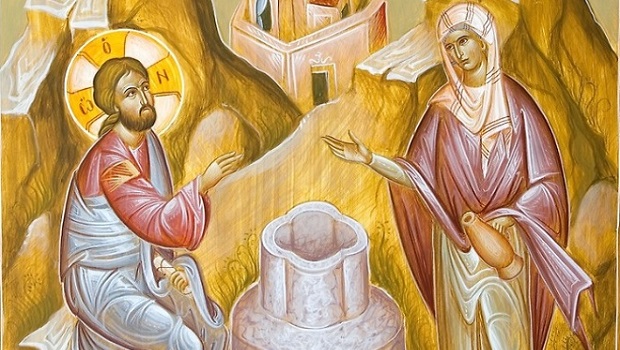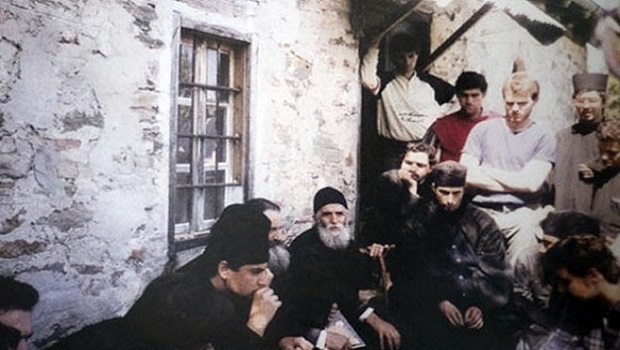This preparation incorporates a series of supplications and a prayer by the priest which concludes with the words: ‘And count us worthy, Master, with boldness and without condemnation, to dare to call upon you, the God of heaven, as Father, and say’:
‘Our Father Who are in heaven…’ In this prayer, there are three wishes, which were expressed in an older form of English in the optative mood: ‘Hallowed be thy name, thy kingdom come, thy will be done’, meaning ‘May your will be hallowed, may your kingdom come and may your will be done on earth as in heaven’. Then we have the imperative; we tell God what to do. ‘Give us today our daily bread’. Now, it must be admitted that we don’t know the exact words used by the Lord. He would have said this prayer in Aramaic (or possibly Hebrew, since we now know that Hebrew was also in use in everyday life in Israel at the time of Jesus). However that may be, the word in the Gospels, in the original Greek version, doesn’t literally mean ‘daily’. It means ‘of the essence’, that is, something extremely important. Of course, this can be taken to mean ‘daily’, but in the context of the Divine Liturgy the ‘bread’ is now the Body of Christ, so what we’re really saying at this point is ‘Give us that bread without which we cannot live, the Bread of Life’. We then go on to say: ‘And forgive us our debts as we forgive our debtors’. ‘Debts’ here doesn’t just mean money, but all the things we should have done and didn’t. One of these is to be reconciled with people we’ve hurt or who have hurt us. In His Sermon on the Mount, the Lord Himself says: ‘if you are offering your gift at the altar and there remember that your brother has something against you, leave your gift there before the altar and go. First be reconciled with your brother, and then come and offer your gift’ (Matth. 5, 23-4). Learn more about communion.
Source: pemptousia.com
ABOUT THE ORTHODOX CHRISTIAN NETWORK
Orthodox Christian Network (OCN) is a 501(c)3 and an official agency of the Assembly of Canonical Bishops of the United States of America . It is a recognized leader in the Orthodox Media field and has sustained consistent growth over twenty-two years. We have worked to create a community for both believers and non believers alike by sharing the timeless faith of Orthodoxy with the contemporary world through modern media. We are on a mission to inspire Orthodox Christians Worldwide. Click to signup to receive weekly newsletter.
Join us in our Media Ministry Missions! Help us bring the Orthodox Faith to the fingertips of Orthodox Christians worldwide! Your gift today will helps us produce and provide unlimited access to Orthodox faith-inspiring programming, services and community. Don’t wait. Share the Love of Orthodoxy Today!
OCN has partnered with Pemptousia. A Contemporary post-modern man does not understand what man is. Through its presence in the internet world, Pemptousia, with its spirit of respect for beauty that characterizes it, wishes to contribute to the presentation of a better meaning of life for man, to the search for the ontological dimension of man, and to the awareness of the unfathomable mystery of man who is always in Christ in the process of becoming, of man who is in the image of divine beauty. And the beauty of man springs from the beauty of the Triune God. In the end, “beauty will save the world”.




0 Comments